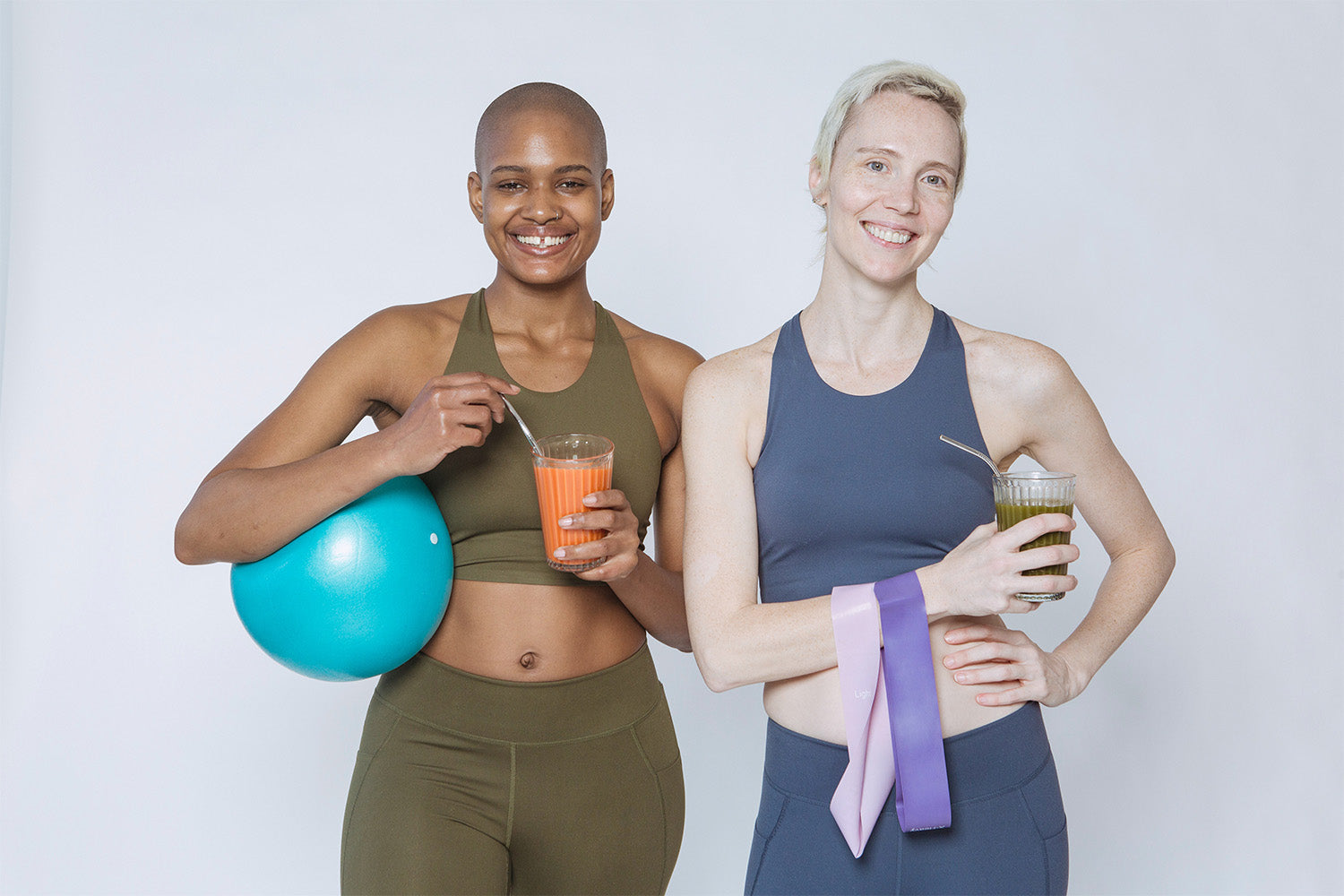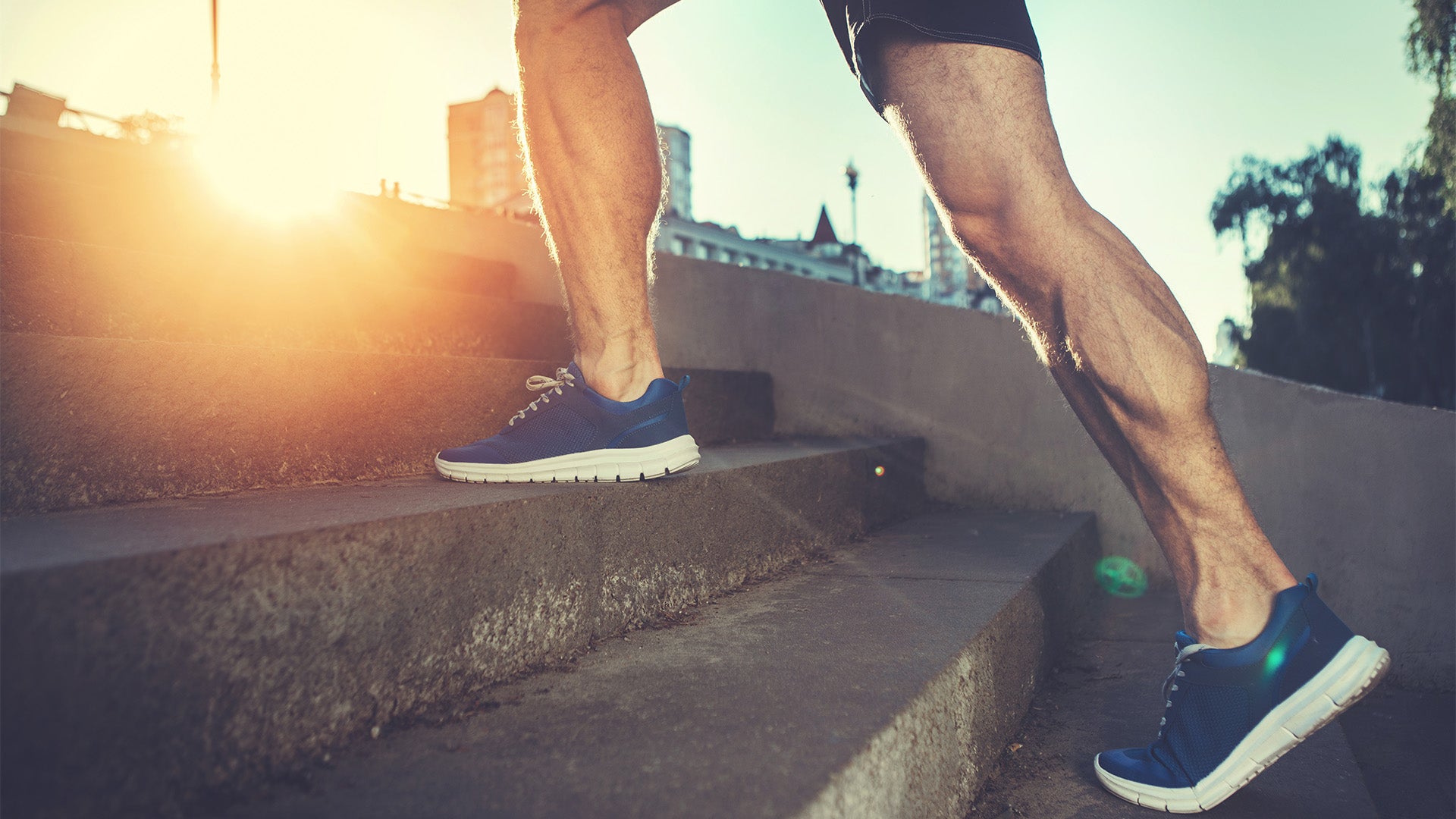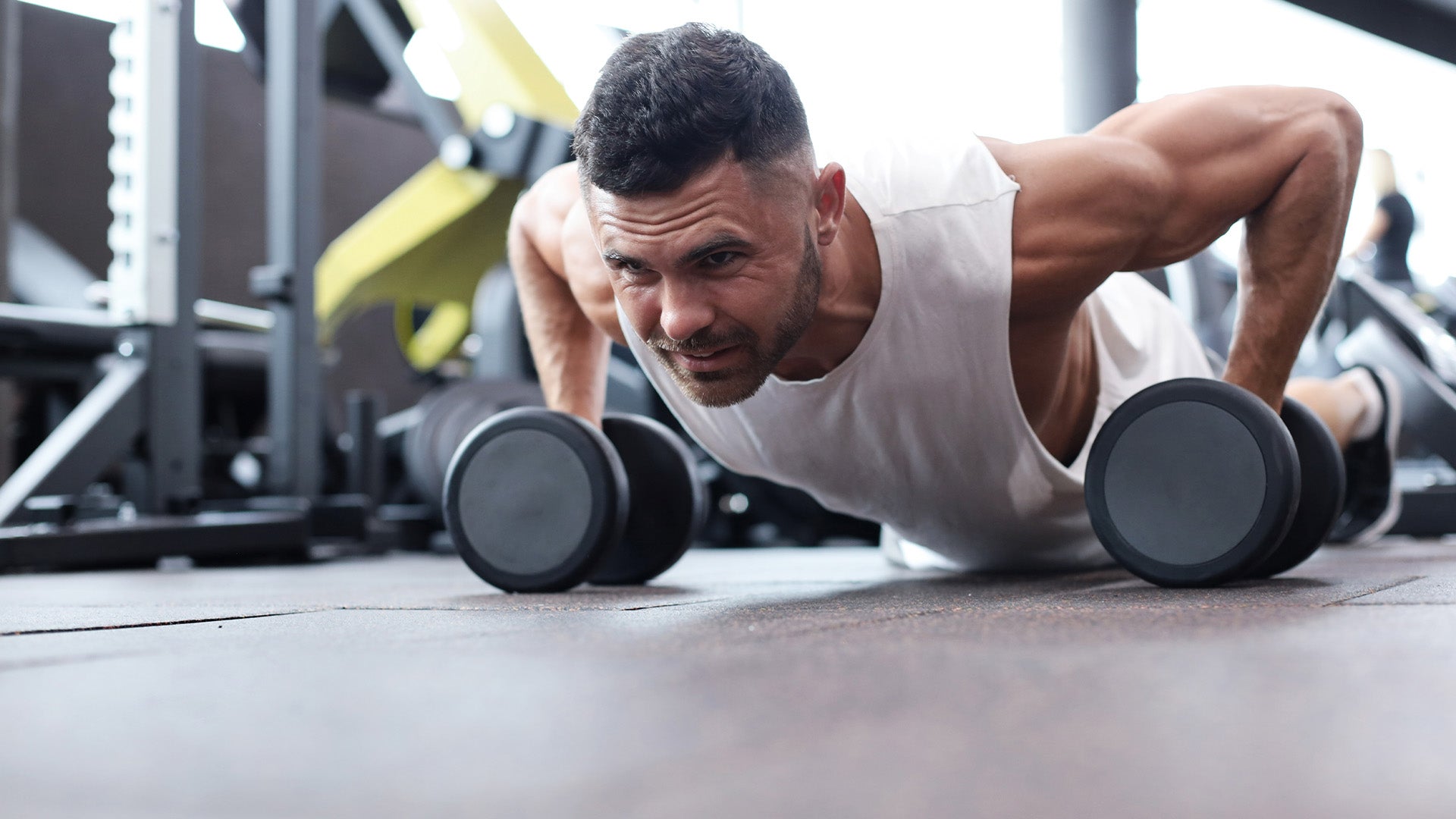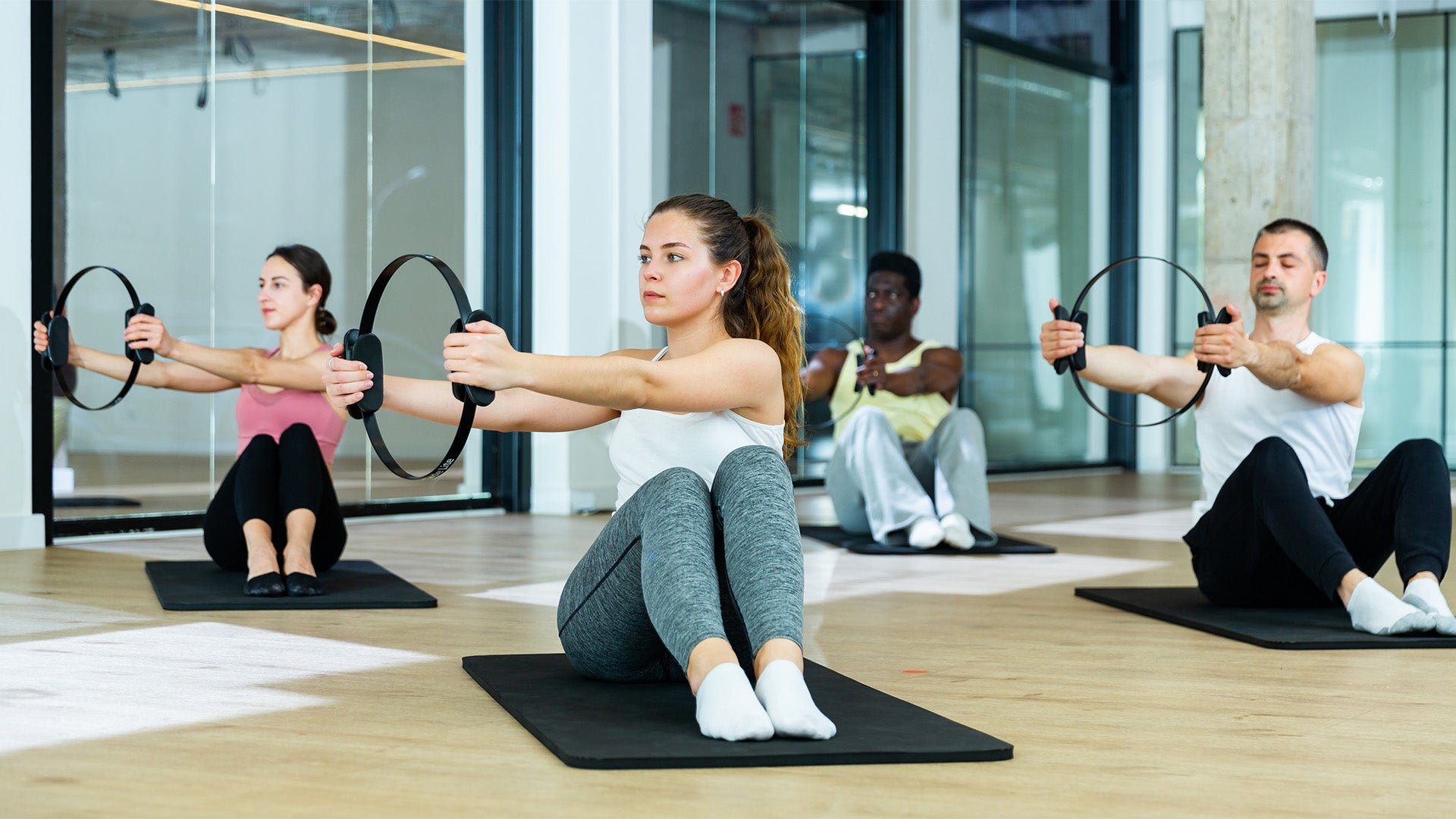Should You Eat Before or After Your Morning Workout?
Among the many debates that gym rats and fitness aficionados can’t seem to agree on is when exactly to fuel your body for a workout. Eating before a morning workout seems to make the most sense, but it might also cause you to get a stomach ache halfway through. And eating after avoids that issue, but can you perform at your best if you’re not nourished?
Let’s settle the score and uncover the answer once and for all: Which is better – eating before or after a morning workout?
What Are the Benefits of a Pre-Workout Meal?
We’ve all been there. You’re powering through your second set of deadlifts, and your stomach is grumbling into oblivion. Being hungry at the gym is one of the worst feelings, and it definitely doesn’t help you focus during a workout.
When you think about it, eating before a workout seems like the right move. After all, you’re spending a lot of energy to get through your exercises, so it makes sense to fuel up before you get into it. After all, you don’t put gas into your car’s tank after you’re about to take a road trip.
Giving your body the right pre-training nutrition can help reduce muscle glycogen depletion. Glycogen is a stored form of glucose (sugar) that is your body’s main source of energy. When you’re well-fed, your muscles can perform for longer periods of time before these energy stores are depleted.
Studies have also found that eating before a workout might help improve performance or allow you to work out for longer. Particularly, eating carbs before a workout can give your body the energy it needs to work at its best.
Of course, timing is key. If you eat a giant meal right before you start bench pressing, we have a feeling you might not be feeling too great. Smaller, carb-heavy snacks about 30 minutes to an hour before a training session seem to work best.
What Are the Benefits of Eating After Exercise?

As we mentioned above, the timing of your meal is important when it comes to your workout performance. And while a deluxe breakfast of pancakes, eggs, and bacon sounds like some seriously hearty workout fuel – it might not do wonders if you eat it immediately before leg day.
Some experts feel that fasted workouts (i.e., ones where you do not eat ahead of time) are the ticket for overall fitness, performance, and even recovery. The main benefit here is extra fat burning. Research shows that working out in a fasted state may increase lipolysis, meaning that fat can be burned at a quicker rate.
Not to mention, you won’t feel heavy, sluggish, or sore from having consumed such a giant meal beforehand. Working before your food has been able to digest can make you feel a bit unwell during the workout itself.
Eating post-workout can help replenish the energy you lost during the workout without the fear of your performance being stunted because of pre-exercise fueling. The major downside is that if you work out on an empty stomach, especially right after waking up, you run the risk of feeling lightheaded and performing sub-optimally.
Which Is Better?
Here’s the thing – there really isn’t a right or a wrong answer to the question. There are benefits to eating before and after a workout session. But it’s less about when you eat in relation to the workout and more about what you’re eating and how long it’s been since your last meal.
If you prefer to work out in the morning right when you wake up, you probably don’t want to eat a full breakfast until after you’re done training. This is because working out on a full stomach can lead to hiccups, nausea, or even vomiting during your training session.
With that said, your body expels a lot of energy while sleeping that you probably want to replenish before working out. If you don’t, you won’t be able to perform at your best. For that reason, eating a small carb-heavy snack before a morning workout might be the way to go.
Consider eating a granola bar, banana, or a few berries before heading to the gym to give your body some fuel without fear of over-eating. This will help your training session feel more satisfying throughout.
The length of your workout also plays a role here. If you’re doing a shorter workout, between 30-45 minutes, you might be able to get by without much need to eat beforehand. But if you’re expecting to spend upwards of two hours pumping iron, you might want to consider at least eating a snack before you go down.
For small snacks, you can generally eat them about 30 minutes to an hour before hitting the gym. You can even eat your snack right when you wake up so that by the time you get to the gym, it’s been digested, and the energy is ready for your body to use.
If you eat a larger meal, you might want to wait about one to two hours before getting those gains – especially if you’re going cardio-heavy.
What Are Some Considerations for Workout Fueling?
Fueling your body before or after a training session is one of the most important things for you to do in order to maintain optimum athletic performance. But there are some things to consider.
Fill Up on Fiber (After Your Workout)
Fiber not only helps regulate proper digestion and blood sugar levels, but it can also make you feel full for longer in a post-workout meal. With that said, you want to be careful about how much fiber you’re eating before a workout. Filling up on fibrous foods before working out can stimulate digestion, which can eat up energy that you could have been using during your workout.
With that said, eating fiber after your workout is great because it can satiate hunger and keep you feeling satisfied for longer.
We’re Pro-Protein
Protein is one of the most important building blocks when it comes to muscle growth. And you can maximize your protein intake by making a protein shake or eating an extra protein bar before or after your strength training workout to build muscle. Low-fat Greek yogurt, peanut butter on whole-grain toast, or a fruit smoothie with protein powder are great options.
Notice how we said you can eat your protein before or after a workout.
While many people think that the “anabolic window” requires you to eat protein immediately after a workout, studies have found that it doesn’t matter when you eat your protein during the day. The only thing that matters is how much you consume each day.
For sports performance, it’s recommended that you eat at least one gram per pound of your goal body weight in protein per day. Some athletes might need to eat as much as 1.5 grams in order to see the results they’re hoping for.
Just be mindful that many protein powders and bars are high in fiber. So even though the anabolic window is a myth, it still might be a good idea to eat your protein after physical activity.
Water You Waiting For?

Water is essential before, during, and after intense workouts to help you replenish hydration. But water does a lot more than just replace lost fluids. It also works to give you electrolytes, which are essential minerals vital for key bodily functions.
You can enhance your electrolyte intake by drinking electrolyte compounds during your workout, such as sports drinks. But you can also add a pinch of salt to your water bottle to replenish electrolytes while stimulating thirst, forcing you to stay hydrated throughout the workout.
In Conclusion
Eating before or after a workout has been an age-old debate amongst gym aficionados, and the unfortunate truth is that there is no right or wrong choice. Eating before a workout gives you the fuel you need to get through your routine while eating after a workout can help you replenish lost energy without fear of feeling gross during your workout.
Of course, if you choose to do your early morning workout after breakfast, you’ll want to keep your meal or pre-workout snack small unless you have an hour or two to spare before you hit the gym. And if you choose to partake in morning exercise without eating, just be sure to keep it short and save the high-intensity sesh for a time when you have food in your system.
Either way, make the most of your workout by working each of your muscles to their max. Speede uses AI technology to adapt to your maximum muscle exertion, giving you the most effective workout in a shorter amount of time.
Ready to feel what it’s all about? Order your Speede Challenger or Speede Pro today to become the strongest version of yourself.
Sources:
Eating and exercise: 5 tips to maximize your workouts | Mayo Clinic.
Exercise Training and Fasting: Current Insights | PMC
Fact or Fiction: The Anabolic Window | Georgia State University
The Best Ways to Fuel Your Workouts Might Surprise You | Cleveland Clinic



